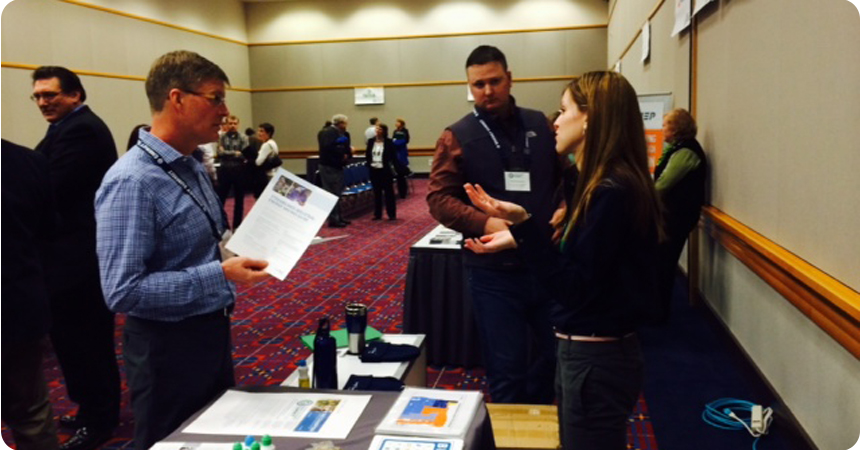
This January, more than 250 industrial plant managers and company executives, energy experts and energy program representatives attended the 7th annual NW Industrial Energy Efficiency Summit at the Oregon Convention Center. This year’s event focused on the intersection of workforce issues and energy efficiency, and allowed attendees to participate in hands-on learning with industry peers.
The event featured keynote speaker Gardner Carrick, vice president of Strategic Initiatives at The Manufacturing Institute, the nonprofit affiliate of the National Association of Manufacturers in Washington, DC. His presentation, “Applying New Energy to Workforce Development for Manufacturers” discussed the challenge of attracting and retaining a quality workforce in manufacturing. With companies spending an average of $3,200 per new employee on training, according to Carrick, it’s a top-of-mind issue for industrial customers. Carrick outlined strategies for obtaining and retaining the skilled staff needed to maintain and grow production and suggested connections that energy champions could make to address this challenge.
Energy Trust senior industrial program manager JP Batmale moderated a panel discussion with the vice presidents of Stumptown Coffee Roasters and Ninkasi Brewing on the recent completion of their custom thermal efficiency projects. Stumptown’s Matt Lounsbury discussed how the regenerative thermal oxidizer installed in Stumptown’s roasting facility has reduced the company’s gas use by 70 percent, decreasing energy costs from $15,000 to $4,000 per month. Lounsbury reported that this project is saving Stumptown an estimated $84,000 per year.
Paul Cook of Ninkasi Brewing explained how the installation of Ninkasi’s new, high-efficiency gas boiler at their Eugene brewery helps the company meet variable load demands and save energy. Ending on a playful note, he played a video on the company’s project to brew space beer. Learn more about Ninkasi’s energy-efficiency investments in Energy Trust’s brewery fact sheet.
Energy Trust, Bonneville Power Administration and Northwest Energy Efficiency Alliance were lead sponsors for the summit, with additional support from the Oregon Department of Energy and Washington State University Energy Program.
